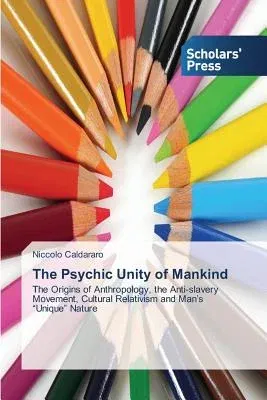Niccolo Caldararo
(Author)The Psychic Unity of MankindPaperback, 10 February 2014

Qty
1
Turbo
Ships in 2 - 3 days
In Stock
Free Delivery
Cash on Delivery
15 Days
Free Returns
Secure Checkout
Print Length
180 pages
Language
English
Publisher
Scholars' Press
Date Published
10 Feb 2014
ISBN-10
3639710479
ISBN-13
9783639710472
Description
Product Details
Author:
Book Format:
Paperback
Country of Origin:
US
Date Published:
10 February 2014
Dimensions:
22.86 x
15.24 x
1.04 cm
ISBN-10:
3639710479
ISBN-13:
9783639710472
Language:
English
Pages:
180
Publisher:
Weight:
272.16 gm

